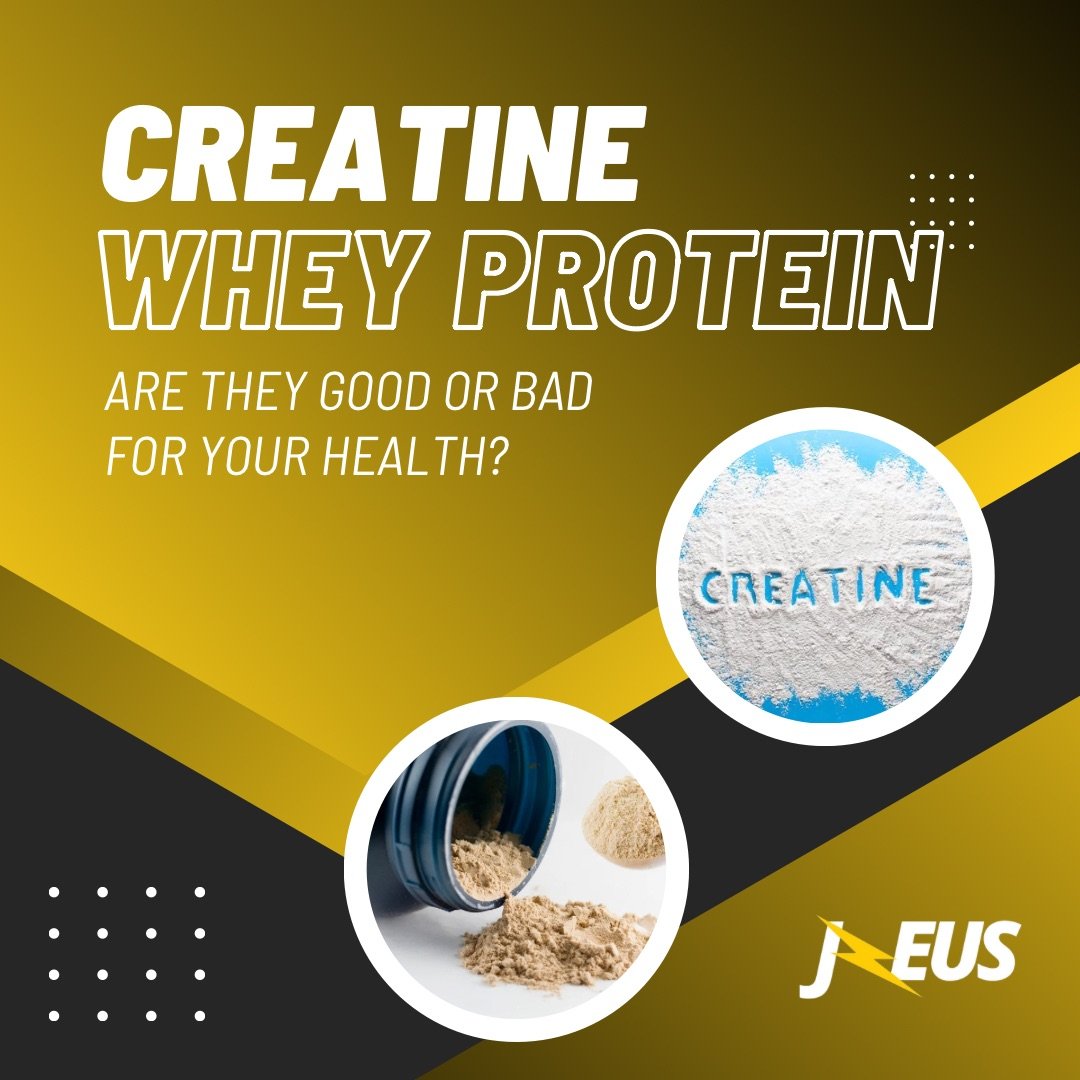Creatine and Whey Protein: Are They Good or Bad for Your Health?
When it comes to building muscle, enhancing athletic performance, and supporting overall health, creatine and whey protein are two of the most popular supplements in the fitness world. However, questions about their safety and effectiveness still come up. Are these supplements good or bad for you? Let’s explore the science behind each to help you make an informed decision.
What is Creatine?
Creatine is a naturally occurring compound found in small amounts in certain foods, like meat and fish, and is also produced by the body in the liver, kidneys, and pancreas. It plays a critical role in providing energy to cells, especially during short, intense bursts of activity such as weightlifting or sprinting. Creatine supplementation can increase the muscles’ storage of this compound, allowing for improved performance, strength, and endurance.
Benefits of Creatine
1. Enhanced Muscle Strength and Power: Creatine has been shown to boost strength, which is particularly beneficial for those focused on resistance training and bodybuilding.
2. Improved Exercise Performance: Supplementing with creatine can help athletes perform better in high-intensity activities, enabling them to lift heavier weights or complete more reps.
3. Supports Brain Health: Studies suggest creatine may have cognitive benefits, potentially helping with memory and reducing mental fatigue.
Is Creatine Safe?
Creatine is one of the most researched supplements, with numerous studies showing it to be safe for most people when taken as recommended. Common concerns, such as kidney and liver issues, are typically unfounded, especially when taken within recommended dosages. However, it’s essential to stay hydrated, as creatine can lead to mild water retention in muscles. Consult a healthcare provider if you have preexisting kidney conditions before starting creatine supplementation.
What is Whey Protein?
Whey protein is a high-quality protein derived from milk, offering all nine essential amino acids necessary for muscle growth and recovery. It’s easily digestible and is often used by athletes and fitness enthusiasts to meet their protein needs.
Benefits of Whey Protein
1. Supports Muscle Growth and Recovery: Whey protein is rich in amino acids, especially leucine, which is crucial for muscle repair and growth.
2. Aids Weight Management: Protein helps with satiety, making you feel fuller for longer and potentially reducing cravings. This can be beneficial for those aiming to lose weight while maintaining muscle.
3. Boosts Immune System: Whey protein contains immunoglobulins that can support immune function, helping the body recover and stay healthy.
Is Whey Protein Safe?
For most people, whey protein is safe and beneficial when used as part of a balanced diet. Those who are lactose intolerant may experience bloating or stomach discomfort, as whey is derived from dairy. Fortunately, lactose-free whey protein options are available. As with any supplement, moderation is key, and it’s best to avoid relying solely on whey protein as a primary protein source.
Conclusion: Are Creatine and Whey Protein Good or Bad?
Both creatine and whey protein can be beneficial when used responsibly. They offer unique advantages for muscle growth, recovery, and performance


